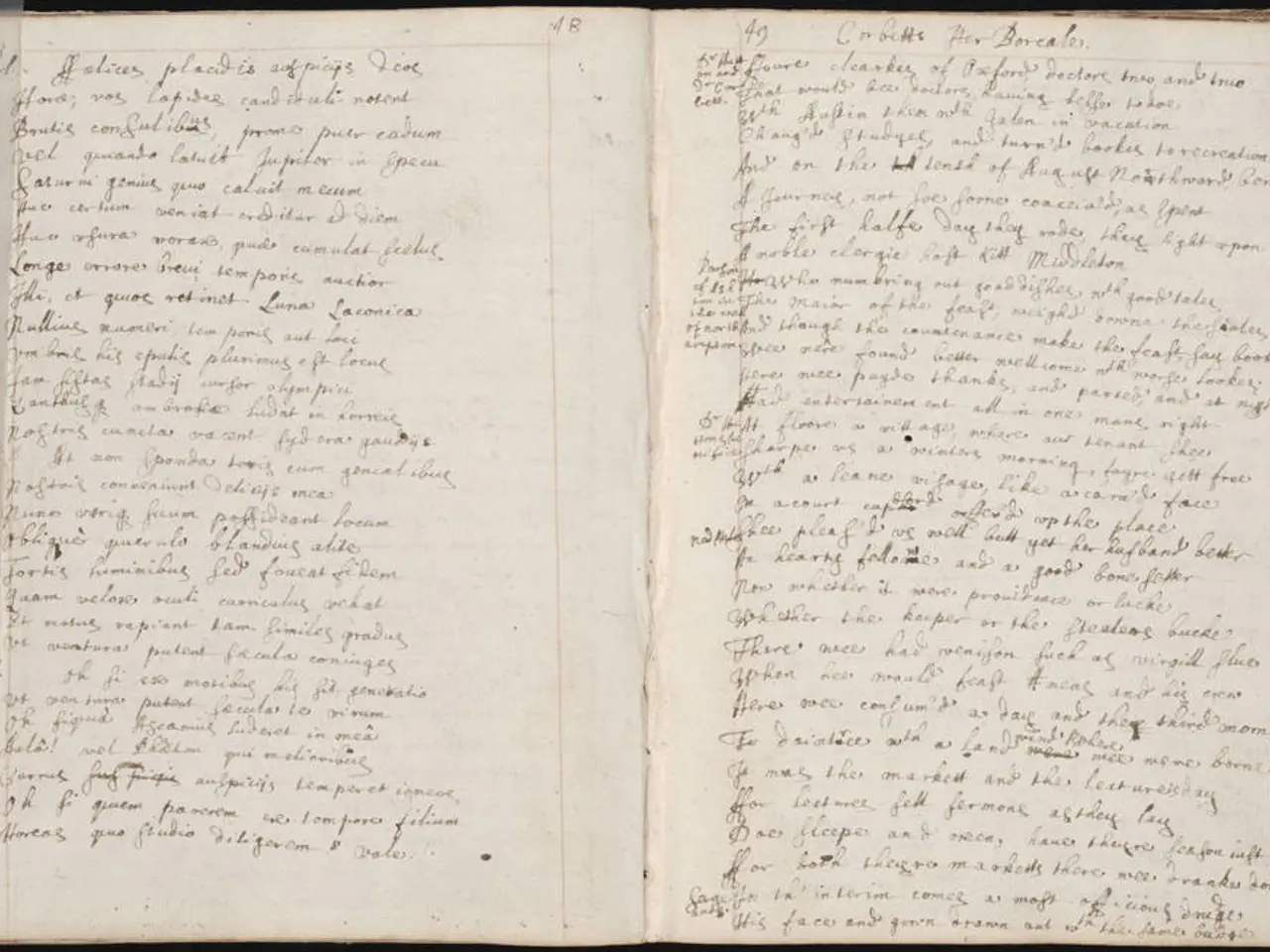Guidelines for Financial Success as a Published Author
In a guest post contributed by Gary Smailes, a seasoned freelance writer, historian, and researcher with over twenty books in print, the question of whether full-time writers truly exist is addressed.
According to Chip MacGregor, a US agent, the path to becoming a full-time writer can be mapped out through a three-rule system. However, the process is complex and largely depends on luck.
Most traditionally published writers receive an advance, a sum of money paid by publishers before publication, which acts as an advanced payment of royalties. The size of this advance varies greatly, with factors such as the book's potential market, the writer's potential selling power, and the agent's negotiation skills coming into play. For a debut novel, it typically ranges between £500 and £10,000, though it can be more.
One strategy for securing a steady income from writing is to produce one book every six to eight months and secure two or three book contracts. This would provide enough advance money to buy time to write. Four to six books earning a royalty each year can make a full-time writing career a realistic option.
Royalties, the amount of money a writer receives for each book sold, are complex and often not reliable for immediate calculations. Many books may not sell enough copies to earn back the advance, and those that do may not start paying out until after a full year of sales.
Film rights are another potential source of income. A filmmaker may pay an option fee for an exclusive period to turn a book into a film. The option fee varies, with better-selling books commanding higher prices.
Foreign rights, the rights for a book to be published and sold in another country, can provide a second royalty stream and can make a writer's income attractive if several foreign rights are sold. However, these rights can be unpredictable and often beyond the control of writers.
Authors like Caroline Wahl have built full-time writing careers without reaching bestseller status. Wahl gained recognition through a strong social media presence and a dedicated community, with her debut novel becoming a favourite among independent booksellers rather than mainstream bestseller lists.
Writing needs to be treated as a job, with planning, setting goals, and managing various aspects such as capturing ideas, delivering manuscripts, networking, and building a fan base. A group of writers who are able to do this effectively can earn enough income from writing to give up their day jobs.
Gary Smailes, the author of this article, is also the founder of BubbleCow. His extensive experience in the publishing industry offers valuable insights into the world of writing and publishing.
In conclusion, while some writers can earn enough to give up their day job, most writers work on a part-time basis. Treating writing as a job and being strategic in one's approach can increase the chances of success in this competitive industry.
Read also:
- Nightly sweat episodes linked to GERD: Crucial insights explained
- Antitussives: List of Examples, Functions, Adverse Reactions, and Additional Details
- Asthma Diagnosis: Exploring FeNO Tests and Related Treatments
- Unfortunate Financial Disarray for a Family from California After an Expensive Emergency Room Visit with Their Burned Infant








